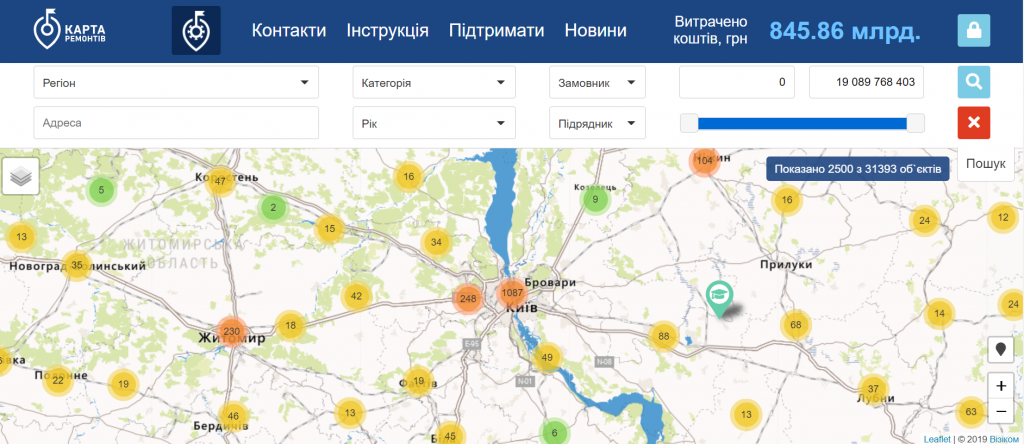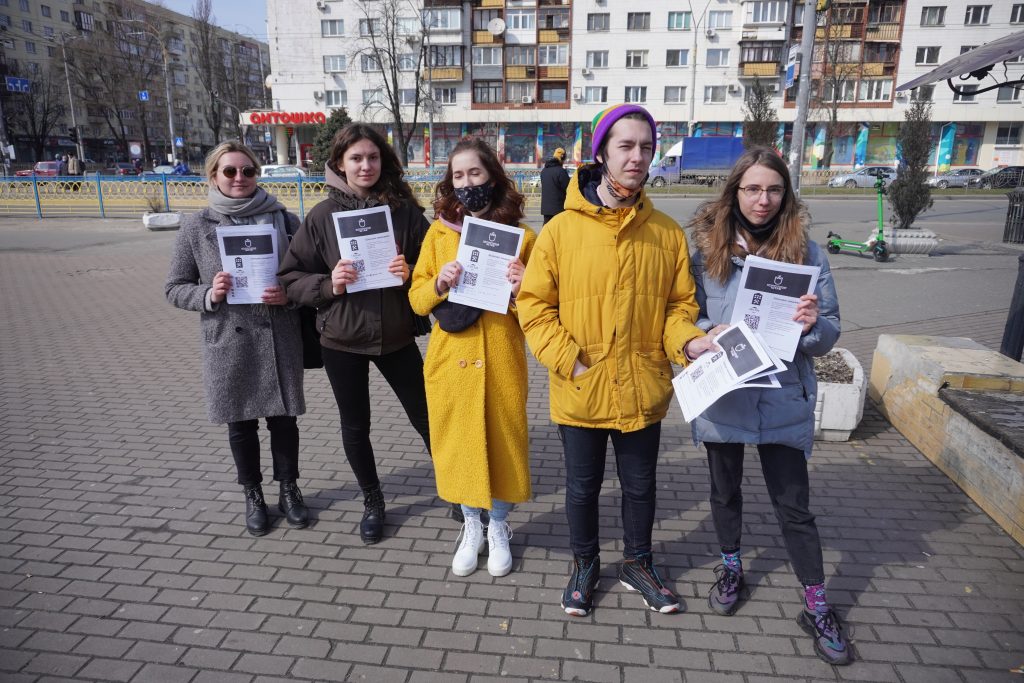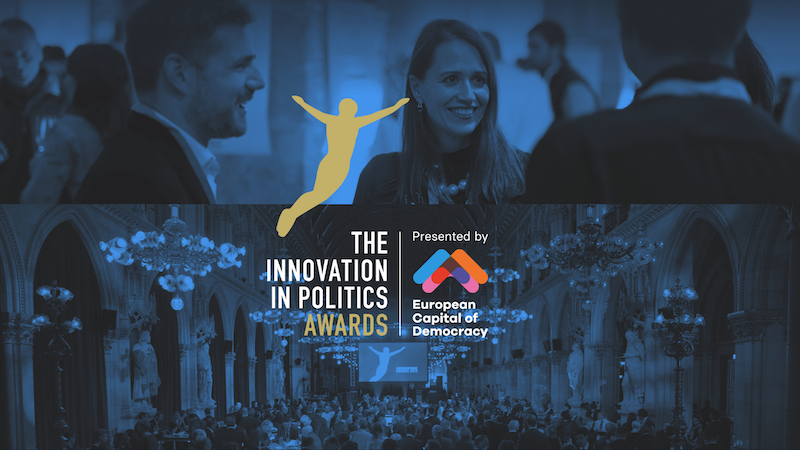In 2020, the application Map of Repairs won The Innovation in Politics Award in the Democracy category. Dubravka Šuica, Vice-President of the European Commission for Democracy and Demography, presented the Award to the winning team. We spoke with Yulia Grechka, Head of the Board of CSO Anti-corruption Headquarters, about what it takes to tackle corruption.
What inspired you to become an anti-corruption advocate?
Yulia Grechka: Three years ago I was asked to work for the NGO Anti-Corruption Headquarters and I immediately jumped at the opportunity. Corruption is such a huge problem in Ukraine, so society needs decisions and truths for dealing with this problem. The mission of our organisation is interesting and useful, this is why I think we are doing the right thing.
How did the Map of Repairs come about?
Yulia Grechka: Originally, the prototype for the Map of Repairs project was initiated by Halyna Yanchenko, my predecessor at Anti-Corruption Headquarters who is now a Member of Parliament. Two years ago, my team and I started to develop it further and created an easy-to-use tool that allows everyone across Ukraine to get involved with anti-corruption, no matter where they live or what job they have. Usually, when talking about corruption, associated reforms or new anti-corruption bodies, it is very abstract. But Map of Repairs makes corruption in the field of repair work visible for people in their everyday lives.
How does the Map of Repairs work?
Yulia Grechka: Everyone can find their city on the map and look up their street, their children’s school, the local hospital or even the building in which they live and see how much tax money was paid on repairs in these buildings.
If the data on the map discloses that, for instance, 1 million Hrywnja was allocated to repairs of a building, but there were obviously no repairs carried out, they send us a short message with the necessary information. If government money is not being spent the way it is supposed to, our lawyers can assist them by contacting local authorities to get back the funds and use them for the repairs for which they were intended. People guilty of corruption can be brought to justice.
The project is so successful that the number of users is continuously growing and there is an increased awareness about the importance to fight corruption across Ukraine.

How does the data on the tax money allocated to repairs get on the map?
Yulia Grechka: In Ukraine we have a lot of open data. And one of the open data is procurements. There is a website to which all procurements from across Ukraine are uploaded automatically and in real time. However, this website is used mainly by journalists, lawyers or activists; for most citizens it is too complicated. And this is where Map of Repairs comes in: we import the data related to repairs and match the procurements with the related addresses. The users then get all the information they need very simply, with a few clicks.
What would you say has been the most difficult part in implementing this project?
Yulia Grechka: Our greatest challenge was that we did not have enough resources for a proper communications campaign. Because in order for people to use our tool, they must know about it first! Everyone I tell about the project is really excited about it and asks: “Why did I not know this before?“
Currently we have about 60.000 users. This sounds like a lot, but for a country like Ukraine with a population of almost 42 million … not so much. So we have a long way to go until the Map of Repairs has the reach we intend it to have.
And what was a pleasant surprise?
Yulia Grechka: Our biggest positive surprise is the positive feedback. We get so many responses from people who are ready to fight corruption and who thank us for our work and this instrument.
Because thanks to the Map of Repairs, corruption is not only reported, but we help people to get their money back. We have helped to save millions of Hrywnja with this instrument. The returns on investments of this project is about 500%.
How much political support do you get for your project?
Yulia Grechka: We are glad to receive a lot of support from local politicians as well as members of parliament. We cooperate with several politicians because they use this tool for their voters and they ask us to present the Map of Repairs to the people in their cities so they can use it.
What else needs to be done to fight corruption in Ukraine?
Yulia Grechka: Of course there needs to be political reforms, and a reform of the court system in Ukraine. But everyone could start by no longer giving bribes. And to use the open data more to identify and abolish corruption. Map of Repairs is the first step in this direction.
How has the project developed since we last talked in December? Has there been any recent developments?
Yulia Grechka: The next step is that we want to add road repairs to our Map. This is also very interesting for our citizens, so we are currently trying to get funding for this.
How important is international recognition such as The Innovation in Politics Award for you in this regard?
Yulia Grechka: We include information about being the winners in the Democracy category in 2020 in all our communication activities, because it was such an important victory for us. And it works well for our reputation, of course. It lifted the project onto a European level and opened up more opportunities to invite more sponsors and investors to our future projects.
It is one of the goals of the Awards to invite replication of best practices in other countries. Has anyone reached out to you yet?
Yulia Grechka: We are always looking for partners in other countries where we can replicate the Map of Repairs. So, if you have enough data about procurements, we can do it for your country, too, of course.



